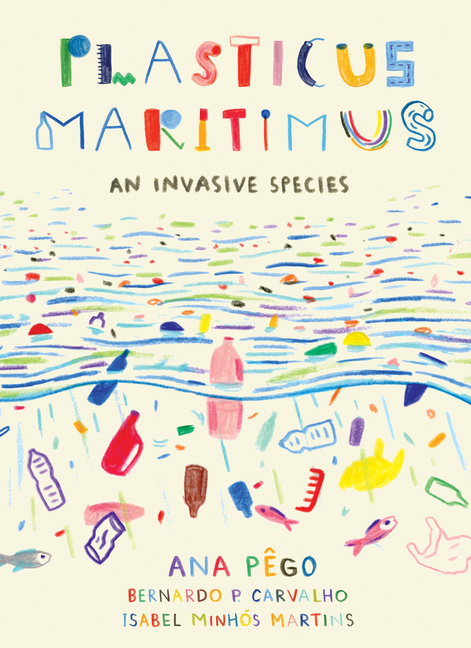Book Description
for Plasticus Maritimus by Ana Pêgo, Isabel Minhós Martins, and Bernardo P. Carvalho
From The United States Board on Books for Young People (USBBY)
When marine biologist, Pêgo, was a young girl, she collected fossils along the shore. Over time, she observed the destructive nature of plastics and their impact on our oceans and ocean life. This innovative and accessible text, co-authored with Minhós Martins, includes an opening chapter about the importance of oceans followed by a “field guide” with insights about the invasive species, “plasticus maritimus.” Subsequent sections provide suggestions to reduce, reuse, and recycle plastics and to take action. Bound with cardboard, this outstanding informational text features detailed diagrams, colored pencil illustrations, tables, photographs, an author's note, and extensive back matter.
Ana Pêgo created a Facebook page, Plasticus Maritimus, and is involved in environmental education projects that combine art and science to raise awareness about ocean conservation. Isabel Minhós Martins graduated in Communication Design from Lisbon College of Fine Arts and co-founded the Portuguese publisher Planeta Tangerina.
Portuguese. Originally published in Portugal as Plasticus maritimus, uma espécie invasora by Planeta Tangerina in 2018. English translation by Jane Springer published in the United States by Greystone Books (Canada) in 2020.
© USBBY, 2022. Used with permission.


